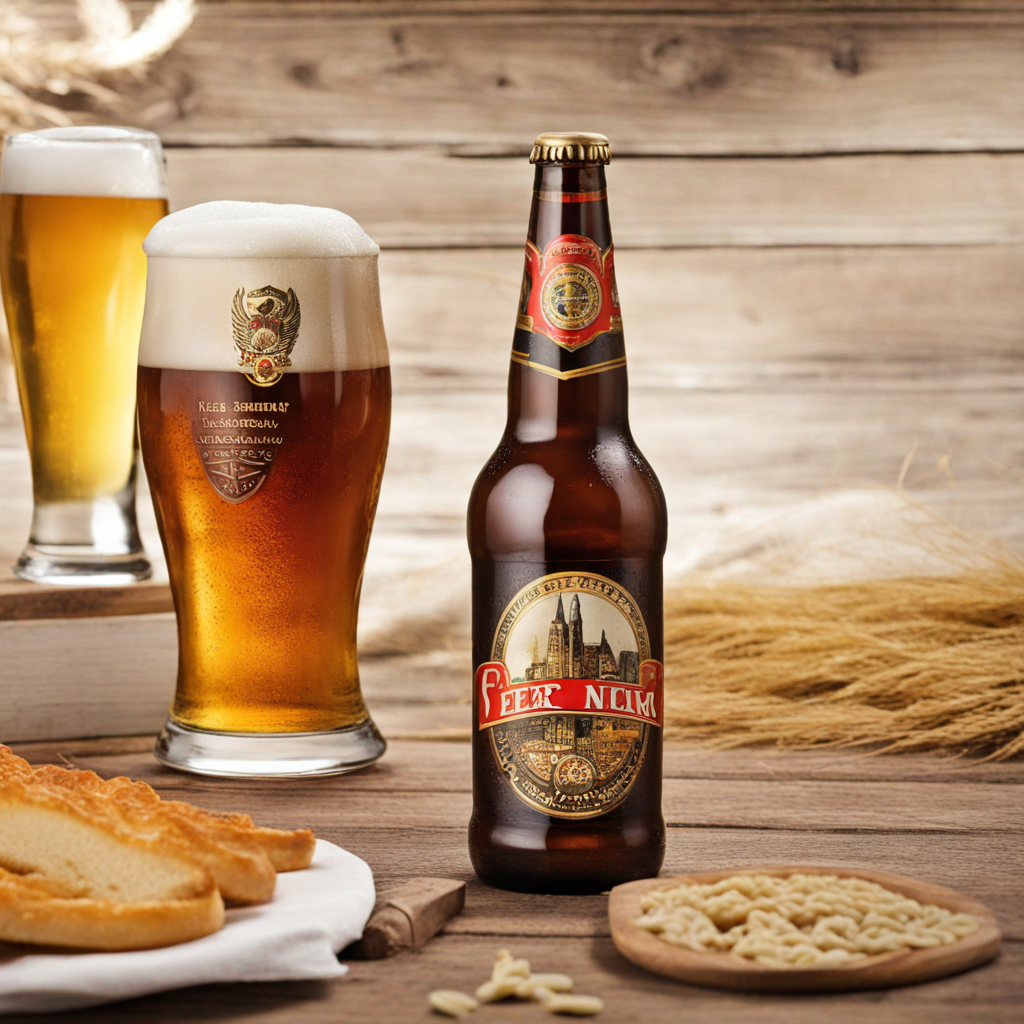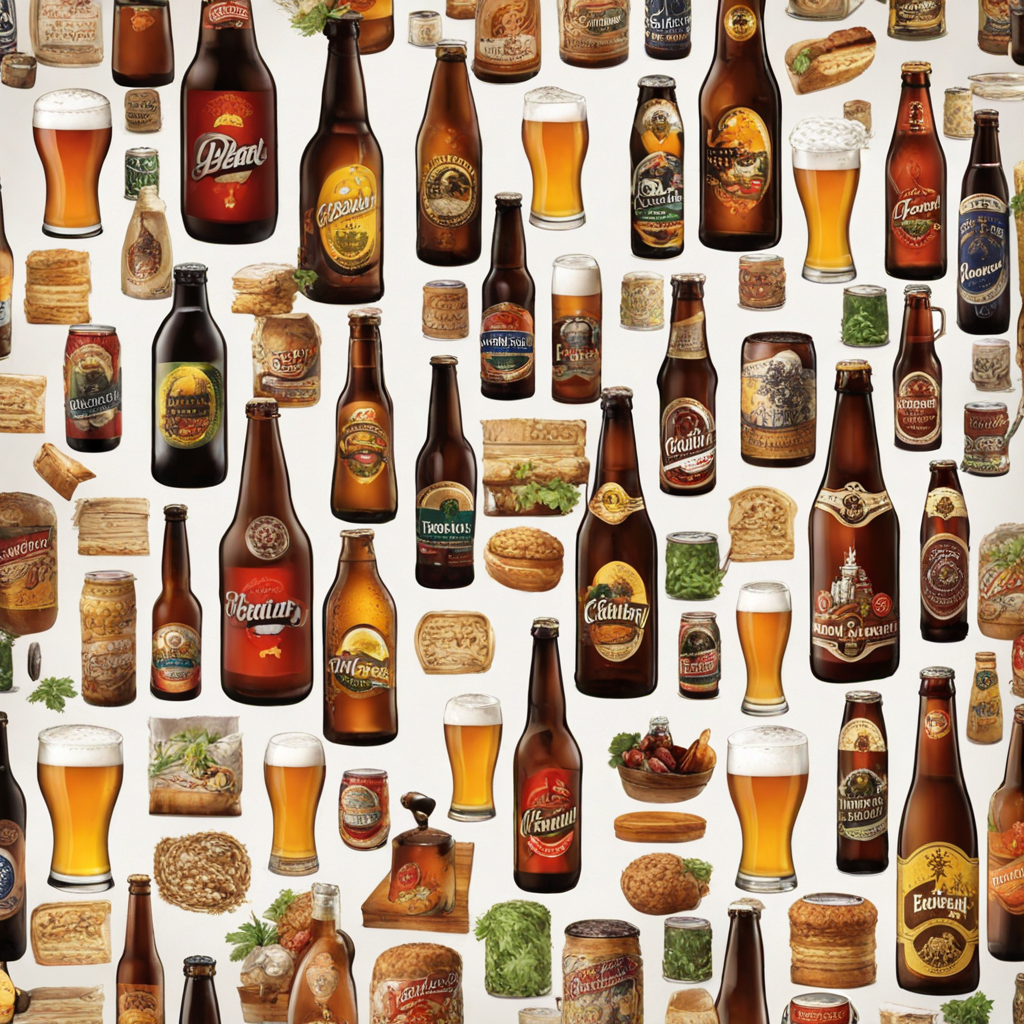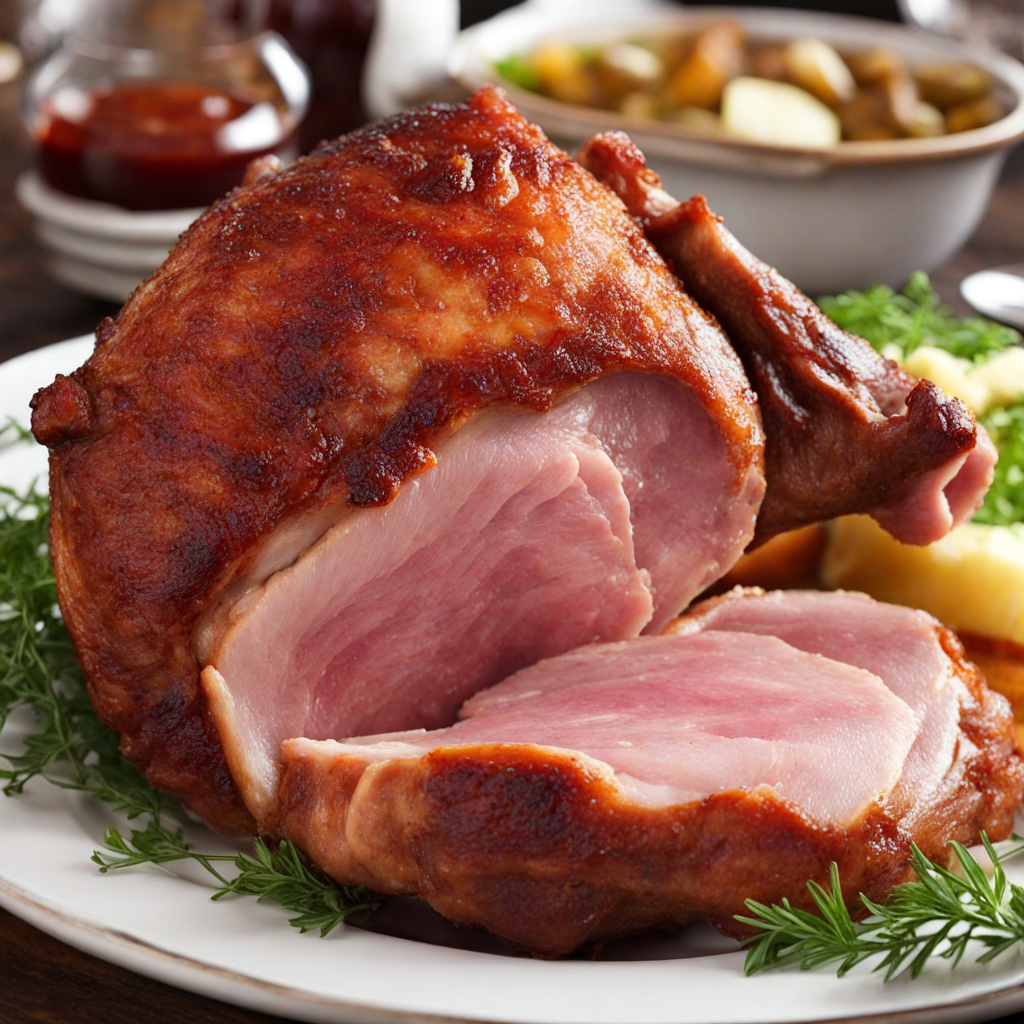Beer
Beer, a beloved beverage originating from Germany, is an exquisite blend of water, malt, hops, and yeast, resulting in a diverse range of flavors and aromas that reflect the country's rich brewing traditions. Each region in Germany boasts its unique beer style, from the crisp and refreshing Pilsner of the north to the rich and malty Dunkel of Bavaria. The use of high-quality ingredients and adherence to the Reinheitsgebot, or German Beer Purity Law, ensures that every sip is a celebration of craftsmanship. You can expect to encounter an array of tastes, from the floral and fruity notes of a Hefeweizen to the roasted, chocolate undertones of a Schwarzbier. The experience of tasting German beer is enhanced by its cultural significance, often enjoyed during lively gatherings such as Oktoberfest or in local beer gardens. Pairing these beers with traditional German dishes like bratwurst, pretzels, or sauerkraut elevates the experience, as the flavors harmonize beautifully. The carbonation in the beer cuts through the richness of the food, creating a balance that tantalizes the palate and leaves you craving more. The communal aspect of drinking beer in Germany fosters a sense of connection, making it not just a drink, but a social experience. Exploring German beer also invites you to delve into the brewing process, where each style holds a story of its own. The meticulous attention to detail, from the selection of ingredients to the fermentation process, reveals the passion and dedication of brewers. Many breweries offer tours and tastings, allowing you to appreciate the artistry behind each brew. Whether you prefer a light and crisp lager or a robust and complex ale, discovering the world of German beer promises a delightful journey of flavors that will expand your culinary horizons.
How It Became This Dish
The History of Bier: A German Tradition #### Origins of Bier The history of bier, or beer, in Germany can be traced back to ancient times. Archaeological evidence suggests that the art of brewing dates to around 3000 BC, with the Sumerians in Mesopotamia producing early forms of fermented beverages. However, it was in the heart of Europe, particularly in what is now modern-day Germany, where beer began to take on a distinctly cultural identity. The earliest recorded mention of beer in Germany dates back to the 9th century when the Bavarian Duke Tassilo III established brewing regulations. By the Middle Ages, monasteries became the epicenters of brewing, with monks perfecting the craft. They brewed beer not only for sustenance but also as a means of income. The purity of their brews was often ensured by the use of high-quality ingredients, which contributed to the distinctive flavors that would define German beer. #### The Reinheitsgebot: The Beer Purity Law In 1516, the Reinheitsgebot, or the Beer Purity Law, was enacted in Bavaria. This law stipulated that only three ingredients could be used in the production of beer: water, barley, and hops. Yeast was later added to the list after its role in fermentation was understood. The Reinheitsgebot was significant for several reasons. Firstly, it established a standard for beer production that emphasized quality and purity. Secondly, it helped protect consumers from inferior products and fraud. Lastly, it solidified beer’s place in German culture as a beverage of distinction, separating it from other fermented drinks in Europe. #### Cultural Significance Beer has long been woven into the fabric of German culture and society. It is not merely a beverage; it is an integral part of social rituals, celebrations, and everyday life. The German beer garden, which emerged in the 19th century, is a prime example of how beer is interlaced with communal and familial bonds. These open-air spaces allow people to gather, relax, and enjoy food and drink together, fostering a sense of community. Festivals centered around beer, such as Oktoberfest, have roots that delve deep into German history. The first Oktoberfest was held in 1810 to celebrate the marriage of Crown Prince Ludwig to Princess Therese of Saxe-Hildburghausen. What began as a local event has grown into the world’s largest folk festival, attracting millions of visitors who come to enjoy not just the beer but also traditional German food, music, and dance. Beer is also deeply embedded in religious and seasonal celebrations. For instance, in many regions, special brews are created for holidays like Christmas, showcasing unique flavors through spices and herbs. The tradition of brewing “Bock” beer during Lent is another example, as it was often consumed by monks during fasting periods. #### The Evolution of Brewing Techniques As time progressed, the methods of brewing beer in Germany evolved significantly. The Industrial Revolution in the 19th century brought about technological advancements that transformed the brewing landscape. The introduction of steam power and refrigeration allowed for larger-scale production and the storage of beer at lower temperatures, which was crucial for lager brewing. Lagers, which originated in Bavaria, quickly became popular due to their crisp and refreshing taste, as well as their ability to be stored for extended periods. The emergence of pilsner-style beers in the mid-19th century marked a turning point in German brewing. Originating from the Czech town of Pilsen, this style emphasized a lighter body and more pronounced hop flavors. German brewers adopted these techniques, leading to a proliferation of new beer styles and flavors. The brewing landscape diversified with the introduction of wheat beers, dark beers, and specialty ales, each with its unique characteristics. #### A Global Influence In the late 19th and early 20th centuries, German immigrants took their brewing traditions to the United States, leading to the establishment of breweries that would become integral to American beer culture. Cities like Milwaukee and Cincinnati became hubs of brewing activity, and German-style lagers became wildly popular across the nation. This transatlantic exchange further enriched the beer landscape, blending German techniques with local ingredients and flavors. However, the relationship between beer and society was not without its challenges. The Prohibition era in the United States (1920-1933) had a profound impact on the brewing industry, leading many German breweries to close or pivot to producing non-alcoholic products. During this time, some breweries in Germany also faced challenges, particularly in the aftermath of World War I and II, when resources were scarce, and the economy was in turmoil. #### Modern-Day Bier Culture Today, Germany is home to a plethora of beer styles, ranging from the iconic Weizenbier (wheat beer) to rich, malty Doppelbocks. The craft beer movement, which gained momentum in the late 20th century, has also influenced the German beer scene. While traditional styles remain deeply respected, modern brewers are experimenting with new flavors, ingredients, and brewing techniques, leading to a renaissance in the beer industry. The cultural significance of beer in Germany remains strong. Beer continues to be a symbol of regional pride, with each area boasting its unique brewing traditions and specialties. Beer is celebrated not just for its taste but also for its ability to bring people together. Whether in bustling beer halls or quiet gardens, the act of sharing a beer has become synonymous with camaraderie and celebration. #### Conclusion The history of bier in Germany is a rich tapestry woven with tradition, innovation, and cultural significance. From its ancient origins to the establishment of brewing laws like the Reinheitsgebot, beer has evolved into a beloved beverage that transcends mere consumption. It has shaped social gatherings, festivals, and regional identities, making it a cornerstone of German culture. As we look to the future, the ongoing evolution of brewing techniques and the embrace of craft beer continue to ensure that bier remains a vital part of German life. In every sip, one can taste the history, community, and passion that have defined this iconic beverage for centuries. Whether enjoyed during a festive Oktoberfest celebration or a quiet evening in a local bar, beer will always hold a special place in the hearts and hands of the German people.
You may like
Discover local flavors from Germany







